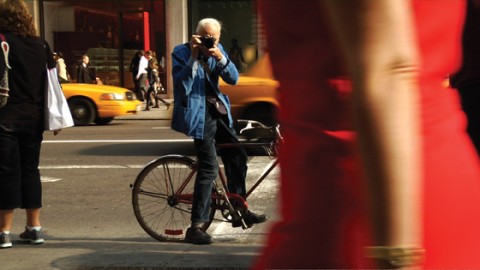Bill Cunningham New York

The invigorating documentary Bill Cunningham New York offers a poignant portrait of a life devoted to the pursuit of beauty. The subject, a photographer who documents New York fashion in his long-running New York Times column "On the Street," is both an artist and a social commentator, though far too modest to describe himself as either.
Director Richard Press shoots Cunningham as he bikes cheerily through New York traffic, negotiates galas and openings and snaps women and men al fresco whose couture catches his imagination. Cunningham—slender and fit, with a generous smile and a light frosting of white hair—is eternally clad in sky-blue lightweight jackets. He turned 80 during the filming but looks 20 years younger.
Cunningham's influence on fashion is undisputed by the other interviewees, including Vogue editor Anna Wintour and Paper coeditor Kim Hastreiter. Yet his touch on the corporeal world feels magically light. He occupies a tiny studio in the Carnegie Hall building, where he sleeps on a cot dropped down among filing cabinets; he eats sandwiches and sips coffee in inexpensive eateries when he can take a few moments out from packed days and nights. (He doesn't partake of the spreads at the black-tie events he covers, arguing that to do so would compromise his journalistic integrity.)




